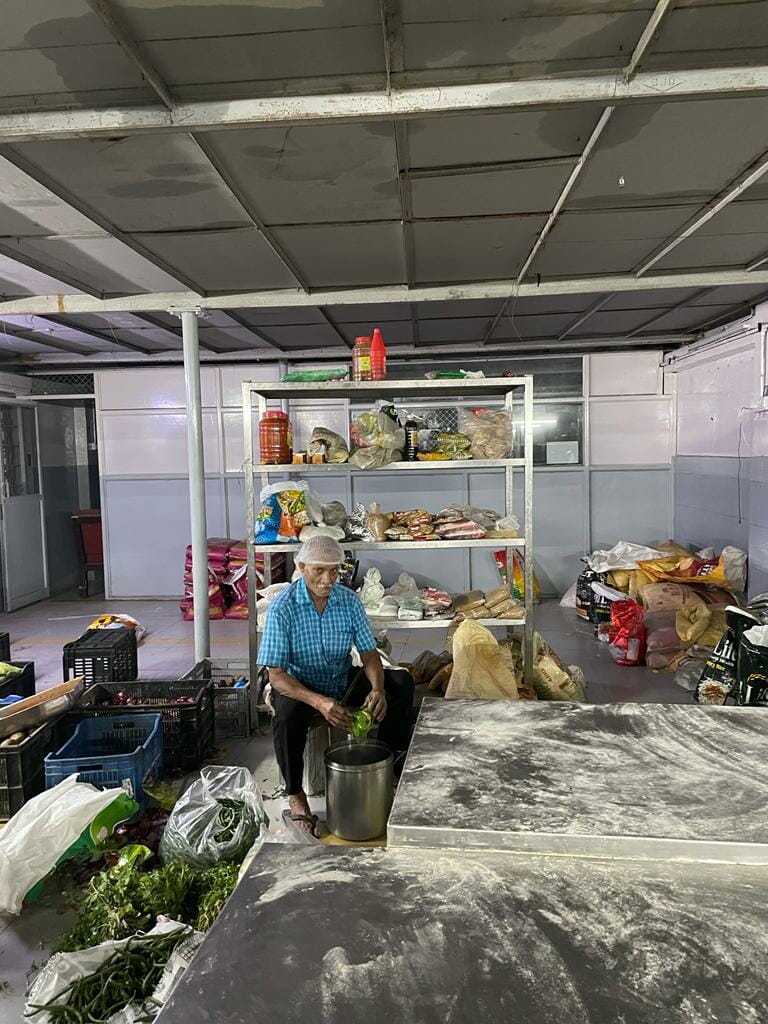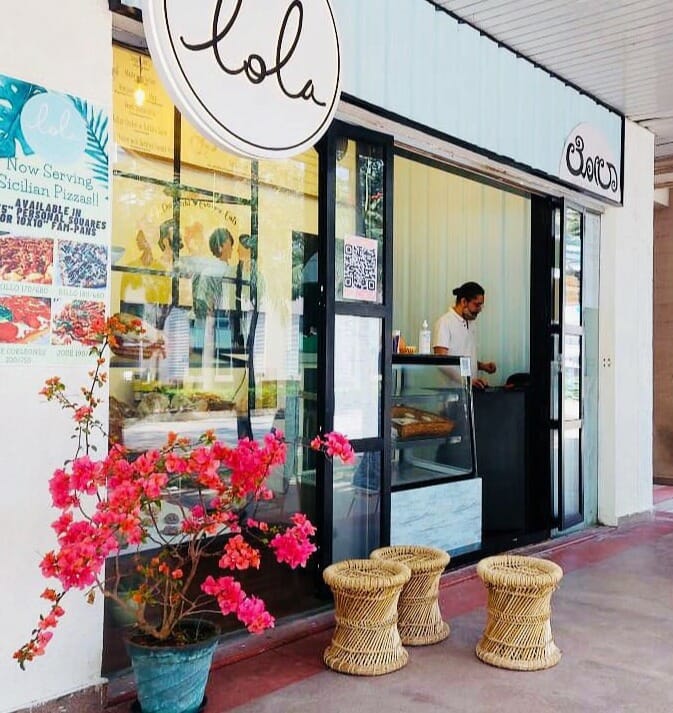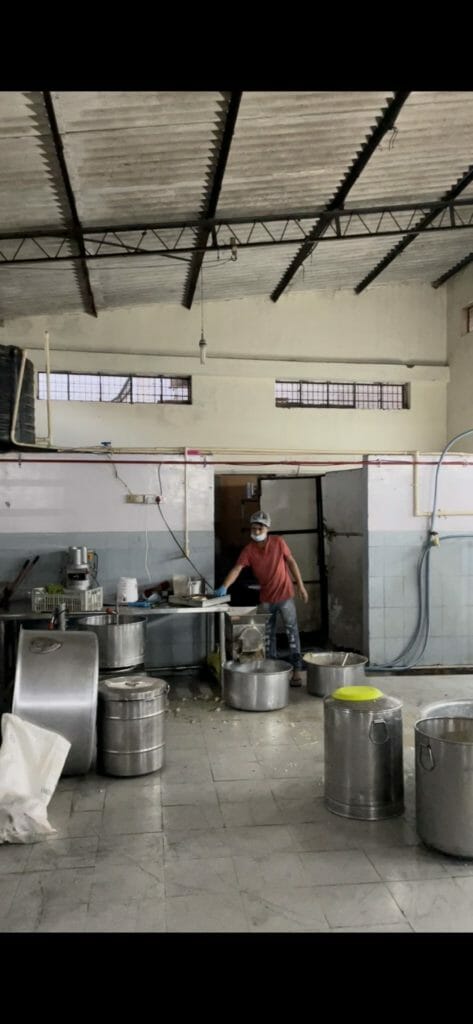While adjusting to the changing rhythms of the workspace has been challenging, the difficulties of keeping the home running have been made somewhat easier by the mushrooming of online home services. Especially home delivery of food that suits all palates. In fact, the food industry as a whole has undergone major shifts. The growing number of Cloud Kitchens, for instance. Cloud Kitchens are restaurants that operate only as a kitchen and home deliver your food order.
Revenue from online food delivery is projected to cross US $12 bn by the end of 2022, with an annual growth rate of almost 11%. According to one estimate, restaurant delivery is likely to be three times the sales of on-premise customers by 2023. Especially in cities like Bengaluru with a large working professional population.
Any new business format has a bearing on the market. The increase in Cloud Kitchen format has largely been attributed to reduced costs and changing customer preferences. Reduction in costs is mainly from these kitchens saving on overhead expenses of owning/renting physical space, while the customer saves on travel, both in terms of money and time.
On the face of it, the Cloud Kitchen concept seems simple and a win-win situation for all stakeholders. However, there are fundamental concerns that this space is grappling with.
Regulatory issues
The proliferation of this model means that food regulations, especially on quality and safety, must account for this new space. But the existing guidelines and procedures for the sale and distribution of food items have not been able to adequately cover this new model.
The Food Safety and Standards Authority of India (FSSAI), the statutory regulatory body of the food sector, has two forms of approval:
- Registration-based
- License-based
The former category, called Petty Business Food Operator, is applicable to petty businesses with an annual turnover of less than Rs 12 lakh, requiring basic documents for verification. The state license, however, demands comprehensive details such as a rental agreement, proof of ownership along with Food Safety Management System (FSMS) declaration.
Ramesh Agarwal, CEO of Food Safety Works, a company that specialises in food regulation, explains that “the intent [of the rules] was to give micro businesses a space to develop”. However, like most policy instruments, it is open to exploitation. ”There’s a chance that people doing big businesses may choose to come under the registration-only category to evade scrutiny,” says Agarwal. Hence, according to the food regulator, there is a high probability of Cloud Kitchens operating illegitimately, either without FSSAI approval and overview or with minimal regulation under the registration-only format of Petty Food Business Operators.
Another key complaint has been about the multiplicity of brands operating out of a single kitchen. A recent substack post regarding such practices forced FSSAI to clarify its position on the matter. FSSAI stated that Cloud Kitchens can sell multiple brands as long as they comply with the mandated norms. The rationale of FSSAI is to allow smaller businesses the flexibility to grow. “If you want to sell Chinese food on any of the online platforms, you’d prefer to do it under a Chinese brand name, despite using the same kitchen to provide other cuisines under other brand names,” says Agarwal.
Along with FSSAI, other avenues of regulation are third-party-regulator companies, like Equinox lab and IADFAC, and food aggregators, like Zomato and Swiggy, themselves. Most food aggregator platforms have mandated FSSAI licenses as a requirement for onboarding.
However, the registration process itself may not be very robust. While Form ‘A’ under Food Safety and Standards Act, 2006 is the application for registration and demands specific details such as the location of the food business, description of food items and overall facilities at the premise, not all of it is physically verified.
I reached out to the FSSAI registration operator as a potential Food Business Operator asking about the various details in the form. The operator, on condition of anonymity, said that on registration an inspector is supposed to visit the premises but he “may or may not come”.

Read more: “Monitoring food safety: Why BBMP, not Central authorities, should be in charge”
A popular choice in the city
Despite several other issues raised by customers, the Cloud Kitchen format is increasingly the model of choice, especially among new entrants. Sejal, who runs Lola café in Mahadevapura with her husband Vishwesh, says that starting out as a cloud kitchen helped their business model. They preferred starting online since it “reduces costs and helps you create your niche in the market through online delivery”.
Sejal also pointed out that factors such as location matter immensely even in the online sphere as the food delivery services are aligned with shorter-distance deliveries. Lola café eventually got a physical space and now caters to both online and offline orders.
Marketing strategies also depend on the type of food that one is providing. Sangita’s kitchen in Koramangala, which promotes ‘home-cooked’ food, has grown into a trusted brand in this area. By facilitating orders through WhatsApp Business Chat, they have managed to bypass the food aggregator rules. Keeping themselves local and maintaining quality, the kitchen has expanded its customer base over the years.
Generally, customer experience has been positive. Nikhil, a university student from Kerala, who lives in a rented facility in Ejipura, says he avails the cloud kitchen tiffin service twice a day, ordering breakfast and dinner. “The month-long package is frugal and the food is good and suits my needs”.

The concerns
With increasing customer reliance on these online services, a credible and robust regulatory mechanism has become a necessity. If we turn to aggregator platforms themselves as regulators of quality and hygiene, a mixed picture emerges. Equipped with big data on customer preferences, these platforms wield immense power in the food industry space.
However, the lack of transparency of data and financial irregularities are some of the worrisome issues.
This was reflected earlier this year when the National Restaurant Association of India (NRAI) filed a case against Zomato and Swiggy with the Competition Commission of India (CCI) citing these concerns. NRAI has alleged that these platforms have their own cloud kitchens which are promoted on their platforms.
Other than aggregators, third-party organisations are accused of carrying out very cursory inspections of hygiene and safety requirements. To this end, FSSAI has provided a list of certified third-party auditing agencies on its website, along with the time period beyond which they need to get their auditing licences renewed.
Read more: Harsh realities of delivery workers: a discussion
Further, to address these lacunae of credible evaluation, FSSAI has come up with a new scheme titled Hygiene Rating Scheme (HRS). While being part of the scheme is presently voluntary, it encourages the Food Business Operators to distinguish themselves from others by obtaining high hygiene ratings and enrolling as a ‘Responsible Space to Eat’.
The objective is to create a culture of food regulation by selecting independent agencies as Hygiene Rating Audit Agencies. These in turn will be trained under Food Security Training and Certification (FoSTaC) to ensure uniformity in the verification process.
An initiative like HRS must be expanded to ensure the sustainable expansion of the food industry as it increasingly moves towards online delivery business models. COVID-19 and its aftermath have changed the food industry massively, requiring that regulators and aggregators change accordingly to ensure and nurture safe and improved customer experiences.
